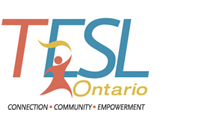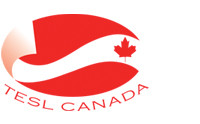Please note:
About the program
If you're someone who loves language, travel, and helping others learn, Conestoga's TESL program is your passport to a global teaching career. In just one year, you'll gain the theory and practical experience needed to teach English in Canada or abroad. With 50 hours of field placement and guidance from certified instructors, you'll be ready to lead your own ESL classroom and pursue professional certifications.
What you'll learn
Language acquisition theory and ESL teaching foundations
Classroom strategies for diverse learners
Practical experience through 50 hours of supervised field placement
Preparation for TESL Canada and TESL Ontario certifications
Skills to teach English in schools, community programs or international settings
Program information
Admission requirements
- A three or four year bachelor's degree, master's degree, or PhD from accredited institution(s) located in Canada that includes a combined three-years of in-person instruction in English as the language of instruction.
or
- a degree deemed equivalent through a Comprehensive or course-by-course report from a member agency of the Alliance of Credential Evaluation Services of Canada (ACESC), such as
- World Education Services (WES), Ontario
- International Credential Assessment Service of Canada (ICAS), Ontario
- Comparative Education Service (CES), Ontario
Note re: admission requirements
- Canadian citizens and permanent residents with transcripts from outside Canada require a course-by-course credential evaluation. You can request this at a reduced fee through the college by completing the Assessment of International Credentials for Admissions and Credit Transfer online form, or through an approved provider such as ICAS or WES.
- If degree(s) were not completed in English, language proficiency can be demonstrated by one of the following:
- Minimum acceptable scores/bands from an ELP test taken within two years:
- Michigan English Test (MET): Listening 64, Reading: 64, Speaking: 64, Writing: 64
- IELTS-Academic Test: Listening: 7 Reading: 7 Writing: 7 Speaking: 7
- CAEL-At a Test Centre: Listening: 70 Reading: 70 Writing: 70 Speaking: 70
- CAEL Online: Listening: 70 Reading: 70 Writing: 70 Speaking: 70
- TOEFL iBT: Listening: 24 Reading: 24 Writing: 27 Speaking: 26
- TOEFL iBT Special Home Edition: Listening: 24 Reading: 24 Writing: 27 Speaking: 26
- Examination for the Certificate of Proficiency in English (ECPE): Level: C2
- Required proof:
- language proficiency test report/s
- Evidence of grades 6-12 completed with English as the language of instruction in one of the countries listed below.
- Required proof:
- report cards or confirmation letter from school board
- Degrees from the following countries do not require additional proof of language proficiency, provided English was the language of instruction and the degree(s) include at least three years of in-person instruction:
- Anguilla, Antigua and Barbuda, Australia, Bahamas, Barbados, Belize, Benin, Bermuda, Botswana, British Virgin Islands, Cayman Islands, Cameroon, Dominica, Ghana, Grenada, Guyana, Jamaica, Montserrat, Nigeria, New Zealand, Republic of Ireland, Saint Kitts-Nevis, Seychelles, Sierra Leone, Singapore, South Africa, St. Lucia, St. Vincent, Trinidad
Admission procedures
- Submit proof of the admission requirements, including transcripts.
- Applicants meeting minimum admission requirements are invited to begin the selection process which requires them to:
- write an essay on an assigned topic;
- attend a meeting with faculty to discuss program suitability.
- Final selection is made following an assessment of the admission requirements. Selection will be made on the basis of:
- Combined assessment of previous academic achievement
- English language proficiency
- Essay and interview performance
Program requirements
- Students will need to complete OHS1320 prior to registering for either Field Placement courses
- Students who fail no more than one course by not more than 10% and have passed at least one evaluation of the course may take a supplemental assessment for a pass.
- Students must successfully complete all courses in Part I before taking courses in Part II.
- Students who fail the same course more than once will be discontinued from the program.
- Students who fail two or more courses will be discontinued from the program.
- All courses have a minimum passing grade of 65% with the exception of the Field Placement courses which are Pass/Fail courses
Graduate opportunities
For more details on related occupations, job market information and career opportunities, see the Government of Canada website: https://www.jobbank.gc.ca/home
Program outcomes
- Differentiate between the language learning needs of learners in order to develop and facilitate appropriate language learning opportunities in a variety of program contexts and delivery models
- Develop learning materials and assessments that support linguistics needs of the learners while meeting requirements of TESL Ontario and TESL Canada standard 2 and encourages a respectful environment for a diverse group of learners and cultures
- Plan lessons, activities, modules, and assessments using established curriculum guides or supports for a variety of program contexts
- Justify the use of a wide range of resources or technological tools to best meet learners’ needs and enhance learners’ engagement and motivation.
- Instruct adult language learners while maintaining professional conduct and practice in a clear and engaging manner which fosters community and supports learning.
- Engage in reflective practice and continuous professional learning in accordance with principles of lifelong learning
Program related resources
Program accreditations
Program contact
- OntarioLearn Team Member
- OntarioLearn@conestogac.on.ca
Interested in taking this program full time?
See our Teaching English as a Second Language full-time program for more information.
Mark your calendar with our registration dates, so you can plan your future.
Fall registration: Opens June 29, 2026
Disclaimer
The College reserves the right to alter information including requirements and fees and to cancel at any time a program, course, or program major or option; to change the location and/or term in which a program or course is offered; to change the program curriculum as necessary to meet current competencies in the job market or for budgetary reasons; or to withdraw an offer of admission both prior to and after its acceptance by an applicant or student because of insufficient applications or registrations, over-acceptance of offers of admission, budgetary constraints, or for other such reasons. In the event the College exercises such a right, the College’s sole liability will be the return of monies paid by the applicant or student to the College.
Students actively registered in cohort delivered programs who take longer than the designed program length of time to complete their studies are accountable for completing any new or additional courses that may result due to changes in the program of study. Unless otherwise stated, students registered in non-cohort delivered programs must complete the program of study within seven years of being admitted to the program.



